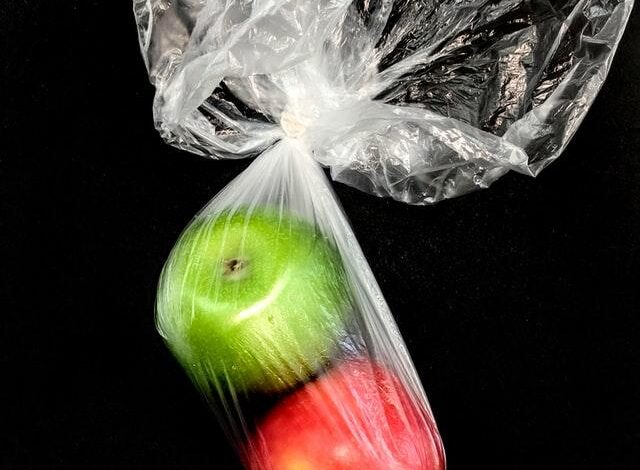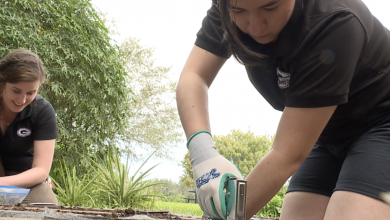To Solve the Plastic Pollution Crisis, Businesses Need to Rethink Physical Product Delivery

According to the Organisation for Economic Co-Operation and Development, global plastic waste will triple by 2060. In the absence of radical action, plastic pollution will rise, mainly driven by rising populations and demands. The convenience of plastic has given birth to a throw-away culture, an attitude and sad reality we’re still struggling with today. Conscientious consumption is the exception rather than the rule. Plastic bags or food wrappers have a lifespan of a couple of minutes, but they’re slow to degrade because their chemical structure makes them resistant to many natural processes.
Companies are the biggest contributors to the worldwide plastic pollution crisis. Therefore, the responsibility lies with corporate polluters, who need to adopt sustainable solutions and systems to put an end to the crisis. Investing in means of solving the problem should be the number one priority for organisations looking to mitigate their direct and indirect impact on the world. Plastic leaks into the ocean due to poor waste management and lack of recycling capabilities. As the negative effects of consumption on the environment have become clearer, it’s paramount to mitigate these effects.
Plastic Pollution and Climate Change Are Two Separate but Connected Crises
Everyone knows that plastic pollution is bad. Nonetheless, not everyone knows that the plastic pollution crisis is intricately linked to climate change. Plastics end up in the ocean, where they release powerful greenhouse gases under the action of sunlight and heat. Let’s not forget that plastic originates from fossil fuels such as crude oil and fossil gas. Regrettably, the contribution of plastic waste and the plastics industry often goes unnoticed. When plastic is discarded in the recycling bins, it doesn’t disappear. Less than 10% of plastic is recycled globally. The rest is dumped into the natural environment.
Companies focus their attention on the collection and recycling of value plastics, which ultimately leads to an imbalance in the system. Instead, they should devote themselves to recovering low-value plastic, mostly single-use plastic. Very little attention is given to post-consumer plastic waste, despite the fact that it can be reprocessed to a high-quality standard. Styrofoam, garments, and fishing nets, to name a few, are left behind. The impact of mismanaged plastic waste on the climate is an urgent challenge. The good news is that there are some positive examples being implemented right now.
Corporations That Commit to Social Change Make the World a Better Place
Any action that a company takes to give back to society matters. Although the attention on the environment has increased, an increase in the amount of plastic waste is still visible. When a company goes beyond its policies and operating practices to take responsibility for its action, it really makes a difference. An organisation must understand its current actions and predict the future consequences of these actions. The flexible nature of corporate social responsibility translates into the fact that there’s no right or wrong strategy. Standing up for something good is what companies should do.
Companies Need to Rethink How Products Are Delivered to Consumers
There’s too much plastic packaging these days. Plastics are deployed because of the unique combination of benefits they provide. Without plastic packaging, numerous products that consumers purchase on a daily basis wouldn’t make the journey to the home or store, let alone survive in good condition long enough to be consumed. Even if plastic polymers are incredibly versatile, they’re not environmentally safe. As a matter of fact, plastic polymers contain chemical additives and contaminants that pose a threat not only to the environment but also to human health. The small plastic chemicals lead to serious problems like infertility, hormone-related cancers, and autism.
Greenpeace thinks that companies should invest heavily in reusable and refillable delivery systems. Facing public pressure, companies in the UK are ditching plastic packaging. Examples include but aren’t limited to Costa Coffee, Marks & Spencer, and Nestle Waters UK, to name a few. Quite a few companies have pledged to eliminate plastic from their shelves, and it’s all due to the UK Plastics Pact, which aims to make plastic reusable, recyclable, and compostable. Reducing the damage caused by plastic is one of the most challenging issues that can be addressed. The companies that have signed the UK Plastics have committed to changing the designs of their packaging.
It’s Imperative to Design Plastic Packaging So That It’s Easier to Recycle
As mentioned earlier, plastic pollution is growing at a rapid scale because waste management and recycling fall short. It’s essential for companies to collaborate with other companies to find solutions that work in the local context. A bale machine or compactor makes it possible to compact different types of plastic waste, not just soft plastic. From sustainability to lower waste management costs, a baler or compactor is a worthwhile business investment. By equipping the organisation with such a machine, business leaders can reduce valuable workspace and optimise the length of time employees spend on disposal.
The enormous reliance on plastics won’t end overnight. But it’s necessary to start now. Without immediate action, twice as much virgin plastic will be created. Several types of plastic resins are used for packaging, including polyethylene terephthalate (PET), polypropylene (PP), and polyvinyl chloride (PVC). Reducing the diversity of plastic polymers is the only way to make recycling easier and more cost-effective. Rather than putting forward false solutions to justify the use of single-use plastic, companies should better invest in systems that place emphasis on reuse to move products efficiently and safely throughout the supply chain.
Producing fewer plastics will reduce the waste that ends up in the landfills or pollutes the world’s oceans. Nevertheless, it’s still imperative to deal with the plastic already in circulation. It can take up to 500 years for plastic to decompose. Reducing plastic production is of the essence. Since plastic manufacturing took off in the 1950s, global production has surpassed 9 billion metric tons. In the UK alone, 4.9 billion metric tons of plastics are placed on the market. All businesses ought to take responsibility for what they put into the world and the pollution they’re causing.




